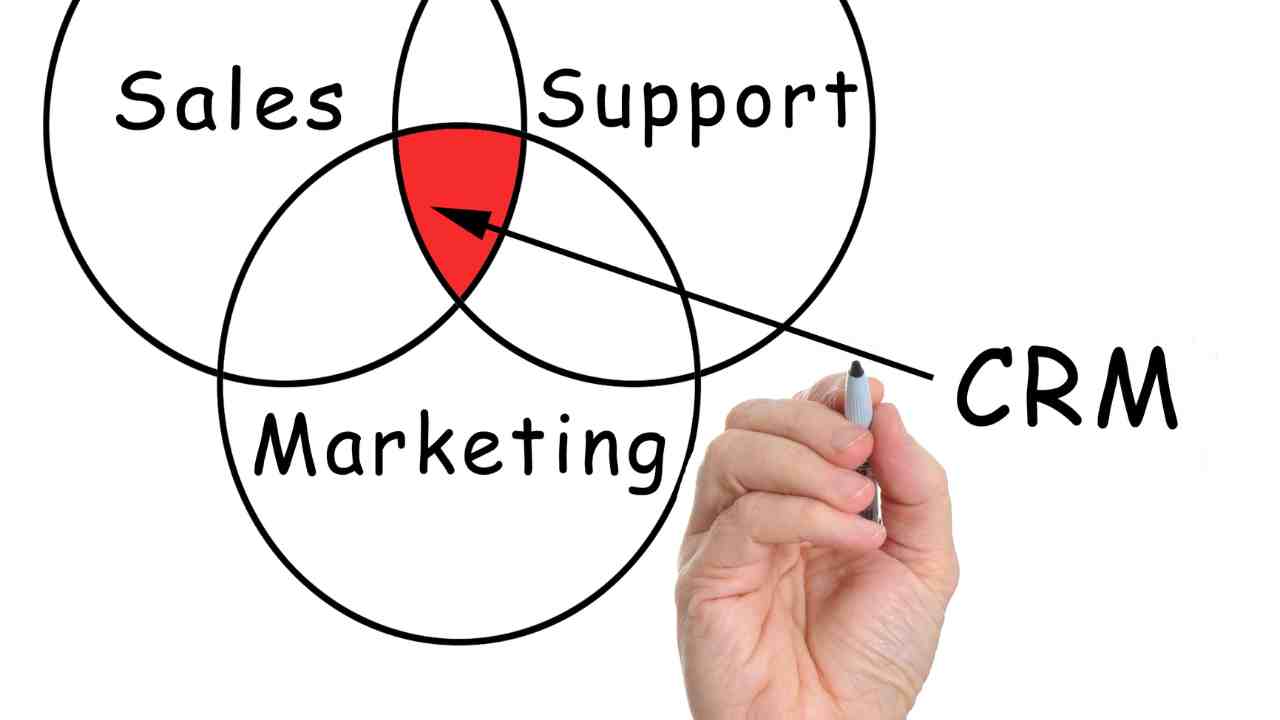How to Overcome the Challenges of CRM Software

Customer Relationship Management (CRM) software has become an essential tool for businesses of all sizes. It helps companies manage their interactions with customers, streamline sales processes, and improve overall customer satisfaction. However, implementing and using CRM software can come with its fair share of challenges. In this article, we will explore some of the common challenges businesses face when using CRM software and provide valuable insights on how to overcome them.
1. Lack of User Adoption
One of the biggest challenges businesses face when implementing CRM software is getting their employees to adopt and use the system effectively. Many employees may resist using CRM software because they perceive it as an additional administrative burden or fear that it will replace their existing processes.
To overcome this challenge, it is crucial to involve employees in the decision-making process and clearly communicate the benefits of using CRM software. Show them how it can streamline their workflows, improve collaboration, and ultimately make their jobs easier. Provide comprehensive training and ongoing support to ensure that employees feel comfortable using the system. Additionally, consider appointing CRM champions within each department who can serve as advocates and provide guidance to their colleagues.
2. Data Quality and Integrity
Another common challenge with CRM software is maintaining data quality and integrity. Inaccurate or incomplete data can lead to poor decision-making, ineffective marketing campaigns, and missed sales opportunities. It is essential to have a robust data management strategy in place to ensure that the CRM system contains accurate and up-to-date information.
Here are some strategies to overcome this challenge:
- Implement data validation rules to ensure that only accurate and complete data is entered into the system.
- Regularly clean and update the CRM database to remove duplicate or outdated records.
- Train employees on the importance of data quality and provide guidelines on how to enter and update data correctly.
- Integrate the CRM system with other data sources, such as email marketing platforms or customer support systems, to automatically update customer information.
3. Integration with Existing Systems
Integrating CRM software with existing systems, such as accounting or inventory management software, can be a significant challenge for businesses. Lack of integration can lead to data silos, duplicate data entry, and inefficient processes.
To overcome this challenge, choose a CRM software that offers robust integration capabilities or consider using a CRM platform that provides seamless integration with other business tools. This will allow you to synchronize data across different systems, eliminate manual data entry, and improve overall efficiency.
4. Scalability
As businesses grow, their CRM needs may change. The CRM software that worked well for a small team may not be able to handle the increased volume of data and users. Scalability is a crucial factor to consider when selecting a CRM solution.
When choosing a CRM software, look for a solution that can scale with your business. Consider factors such as the maximum number of users, storage capacity, and performance under heavy loads. Additionally, choose a CRM provider that offers flexible pricing plans, allowing you to upgrade or downgrade as your business needs evolve.
5. Lack of Customization
Every business has unique processes and requirements. Off-the-shelf CRM software may not always meet all of these specific needs, leading to frustration and inefficiency.
To overcome this challenge, choose a CRM software that offers a high level of customization. Look for features such as customizable fields, workflows, and reporting capabilities. This will allow you to tailor the CRM system to match your business processes and capture the data that is most relevant to your organization.
6. Return on Investment (ROI)
Implementing CRM software can be a significant investment for businesses, both in terms of time and money. It is essential to measure the return on investment to ensure that the benefits outweigh the costs.
To calculate the ROI of your CRM software, consider the following factors:
- Increased sales revenue: Measure the impact of CRM software on your sales performance. Look at metrics such as conversion rates, average deal size, and sales cycle length.
- Improved customer satisfaction: Survey your customers to gauge their satisfaction levels before and after implementing CRM software. Look for improvements in customer retention rates and customer feedback.
- Cost savings: Evaluate the time and cost savings achieved through streamlined processes, reduced administrative tasks, and improved efficiency.
By measuring these factors, you can determine the true value of your CRM software and make informed decisions about its continued use and potential upgrades.
Get Your FREE 14-Day Trial and Take Your Business To The Next Level with an All-In-One Sales and Marketing Platform for businesses, agencies and marketers.
Implementing CRM software can bring numerous benefits to businesses, but it is not without its challenges. Lack of user adoption, data quality issues, integration problems, scalability concerns, lack of customization, and measuring ROI are some of the common challenges businesses face when using CRM software.
To overcome these challenges, involve employees in the decision-making process, provide comprehensive training and ongoing support, and clearly communicate the benefits of using CRM software. Implement data validation rules, regularly clean and update the CRM database, and integrate the CRM system with other business tools to ensure data quality and integrity. Choose a CRM software that offers robust integration capabilities and scalability options. Look for a solution that can be customized to match your business processes and measure the ROI of your CRM software to ensure that it is delivering the expected benefits.
Remember, CRM software is a powerful tool that, when implemented and used effectively, can help businesses build stronger customer relationships, improve sales performance, and drive overall growth.
For an all-in-one sales and marketing platform that can help you overcome the challenges of CRM software, check out SaasExpert.ca. It is designed specifically for small businesses, agency owners, and marketers, providing a comprehensive solution to streamline your sales and marketing processes.
Learn more about “Tips for setting up a CRM System” right here.
Frequently asked questions about How to Overcome the Challenges of CRM Software.

What are the common hurdles encountered during CRM implementation and how can we overcome them? 🚧
Ah, the age-old quest of smooth CRM sailing! Just like any technological venture, CRM implementation has its fair share of challenges. Common obstacles include resistance to change from staff, data migration and integration issues, poor user adoption, and unrealistic expectations. 🌀
But fret not! Each challenge has its solution:
Resistance to Change: People are creatures of habit. Introducing a new system can be daunting. Tackle this by clearly communicating the benefits of the CRM, conducting workshops, and ensuring everyone understands the value the software brings to their specific roles.
Data Migration and Integration: This can be complex, especially when integrating with other existing systems. Engage experts, plan meticulously, conduct test migrations, and always have backup protocols. The adage “measure twice, cut once” rings true here. 📏✂️
Poor User Adoption: Ensure the CRM is user-friendly, provide comprehensive training, and foster a supportive environment where questions and feedback are welcomed. The more familiar and comfortable users are, the better the adoption rate.
Unrealistic Expectations: While CRMs can revolutionize operations, it’s vital to set realistic goals. Establish clear KPIs, understand that there might be teething problems, and stay committed to fine-tuning the process.
Embracing challenges as opportunities for growth and refinement is key. With patience, strategy, and the right mindset, these hurdles can be effectively overcome. 🌉
- crm
- customer relationship management
- How to Overcome the Challenges of CRM Software
- What is CRM Software?







